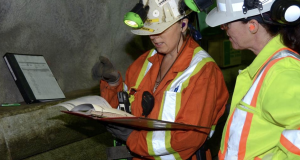Today, Premier Doug Ford addressed the Association of Municipalities of Ontario (AMO) annual conference, where he committed to building strong, local partnerships with municipalities. Highlighting Ontario’s investments in local communities, Premier Ford committed to equipping local governments with what they need to build their communities from the ground up, deliver better value for taxpayers, and build for the future.
“Our government’s relationship with Ontario’s municipalities is incredibly important to us,” said Premier Ford. “As the level of government closest to the people, municipalities know the needs of their communities best. We must work together to put local communities back in the driver’s seat of their own affairs.”
Investing in infrastructure
The government is putting people first by making historic, strategic and local investments in schools, hospitals, transit, highways and other critical infrastructure. The government will be opening the Community, Culture and Recreation Stream under the federal Investing in Canada Infrastructure Program starting September 3, 2019. This program could unlock up to $1 billion in funding for important local projects such as community centres, sports arenas and cultural centres.
“That’s what we mean by investing from the ground up and investing in people,” said Premier Ford. “We’re providing $144 billion over the next decade to make life better and easier for the people in our communities. Every project will help boost the local economy, create jobs and help businesses grow, while increasing revenues for local governments to reinvest into their public programs and services.”
Promoting fiscal sustainability
The government is committed to working with Ontario’s municipalities to find savings, drive efficiencies and modernize service delivery.
Premier Ford announced municipalities will receive transitional funding in 2020, which will ensure municipalities can continue to fund critical services like public health and child care, while working with the Ontario government to reduce costs over the long term. 90 per cent of eligible municipalities took up the government’s offer earlier this year to help fund line-by-line reviews. Both levels of government will continue partnering together on cost-saving efforts in the months and years to come.
The government is also increasing funding by an average of nearly four per cent for land ambulance services for 2019 and the funding will see an increase in 2020. The government is further ensuring there are no changes to the structure of the Ontario Municipal Partnership Fund for 2020.
These steps will ensure municipalities can continue to deliver the services the people of Ontario rely on every day, while local governments work with the province to find efficiencies and help put Ontario on the path to fiscal balance.
Cutting red tape in local communities
Premier Ford celebrated the province’s progress on removing unnecessary red tape and reducing reporting requirements imposed on municipalities by the province.
To date, the government has identified 94 provincial reporting requirements for elimination and is simplifying or consolidating 27 others. This will allow municipalities to focus on the things that matter most — the frontline services people rely on every day.
The government is reducing the reporting burden on municipalities through measures that include:
- Removing certain requirements from future transfer payment agreements for large municipal transit projects;
- Eliminating the auditor’s reporting requirement for government partners in the training, colleges and universities sector, except for organizations deemed to be high risk;
- Eliminating eight reports in the long-term care home sector;
- Consolidating two reports under the Community Homelessness Prevention Initiative;
- Simplifying cemetery and crematorium reports under the Bereavement Authority of Ontario;
- Simplifying the Annual Survey of Public Libraries; and
- Adopting an electronic distribution process to eliminate sending hard copies of reporting requirements to the Ministry of Transportation.
“Municipalities know how to make every dollar count because they know where it’s needed most,” said Premier Ford. “The province inherited a massive debt and broken systems for health care, education, and social services from the previous government. The solution shouldn’t be imposing one-size-fits-all solutions from Queen’s Park. Rather, we should focus on giving our municipal partners more flexibility with their budgets to protect core services.”
“We recognize there’s tremendous value in our municipal relationship. It’s important we continue to talk, listen and work together on our shared priorities,” said Steve Clark, Minister of Municipal Affairs and Housing. “We’ve had 11 meetings with AMO over the past year and brought 53 items forward for consultation. I want to thank AMO for their input and advice. We’ll continue working with all of our municipal partners to deliver better results for the people of Ontario.”
QUICK FACTS
- Ontario’s municipalities work together to achieve shared goals and meet common challenges through the Association of Ontario Municipalities (AMO). The AMO is a non-partisan, non-profit association that supports and enhances strong, effective municipal government in Ontario.
- All Government of Ontario ministers are attending this year’s AMO conference.
- The AMO annual conference gives representatives from Ontario municipalities, provincial decision-makers and other civic stakeholders from across the province the opportunity to meet and share ideas about how to work together to solve some of the biggest challenges facing governments today.
- Accelerated Mining Supervisor Common Core launches this spring - February 6, 2026
- Les élèves de l’école secondaire Saint‑Joseph fabriquent leurs propres mocassins - February 6, 2026
- Students at École secondaire Saint‑Joseph create their own moccasins - February 6, 2026
 Wawa-news.com Local and Regional News
Wawa-news.com Local and Regional News


Can you clarify whether the organization that submitted this article was the province (i.e.. the Conservative party) or AMO?
This media release was written by the Province of Ontario.